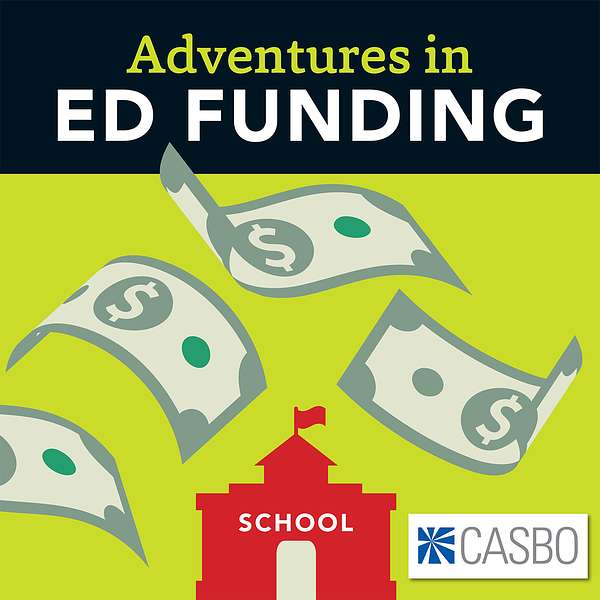
Adventures in Ed Funding
California once ranked among the top states in per student investment. What happened and what will it take for us to climb our way back? Join us as we trek through the surprisingly fascinating world of schools, money and California's future. From local educators, parents and district leaders to education advocates, researchers and State Capitol insiders, we explore the stories of those who have had a hand in shaping education funding and policy, and all those touched by it.
Adventures in Ed Funding
New Revenues for California Schools & Local Communities? Journey Into the Heart of Proposition 15
Proposition 15 on the November 3, 2020 statewide ballot would generate billions in new funding for schools and other local services by changing the way commercial and industrial property taxes are assessed. How would Proposition 15 work? And how is the campaign shaping up?
In this episode, guests David Goldberg, Vice-President of the 310,000-member California Teachers Association (CTA); Saa’un Bell, Strategy Director for Californians for Justice; and Tim Gage, longtime fiscal policy expert and former director of the State Department of Finance take us on a journey into the heart of Schools and Communities First.
A broad-based coalition of organizations have been driving this effort. Proponents say the initiative would revise Proposition 13 (passed in 1978) to require larger, older corporate and commercial property owners to pay their fair share in property taxes. When fully implemented, the measure would generate about $11.5 billion in new revenues for education and community services, with public schools receiving about 40 percent of those new dollars.
Throughout our series, we’ve examined how California, which once ranked among the top states in per-student funding prior to Proposition 13, slid into a decades-long school funding decline. We repeatedly pose the question: What will it take for California to get back among the top-spending states, so we can provide the level of resources that research shows all students need to succeed? Proposition 15 may be a critical component of that answer.
ABOUT OUR GUESTS
An educator for more than 20 years, CTA Vice President David B. Goldberg has spent most of his career as a bilingual teacher at Murchison Elementary in the Los Angeles USD. In addition to serving two terms on the CTA Board, he also served as treasurer of the United Teachers of Los Angeles (UTLA) and was the youngest executive officer to ever hold office in that union.
As a former English Language Learner student from Long Beach USD and first generation college graduate, Saa’un Bell is committed to building a public education infrastructure where all students have opportunities to fulfill their highest aspirations. Saa’un joined CFJ in 2009; currently, she oversees all communications & narrative strategy for regional and statewide campaigns. Listen to more from Saa'un about LCFF.
Principal and co-founder of Blue Sky Consulting, Tim Gage is a highly regarded public servant, having spent over 24 years as a top fiscal advisor in both houses of the California Legislature and as the Director of the California Department of Finance from 1999-2003. He specializes in state-local relations and tax policy.
About CASBO
The California Association of School Business Officials (CASBO) is the premier resource for professional development and business best practices for California's school business leaders. Follow at @CASBO.
About your series guide
Paul Richman is a public education advocate and consultant. Contact him at edfundingca@gmail.com. We value your feedback! Follow at @pjr100